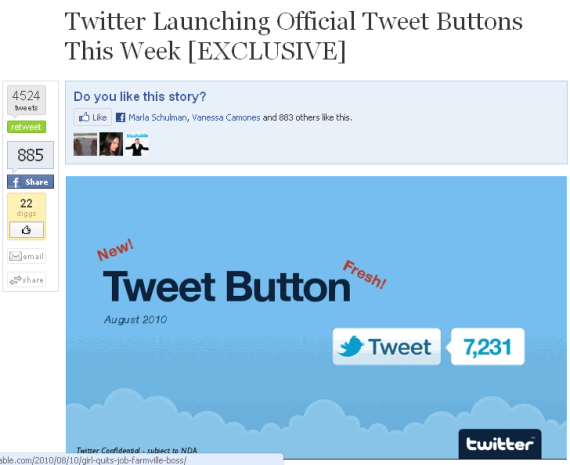Two months ago, I wrote this blog's most read article: After 5 Days on Disqus, I’m Turning Back to WordPress Comments. The quick, controversial summary is that I installed Disqus and, after concerns of not being able to fully leverage that content for SEO and on my own site, I reverted back to the standard Wordpress comment system. Apparently I wasn't the only blogger struggling with whether this issue - the comment debate was rich and included prominent bloggers, Fred Wilson (a Disqus investor) and even Daniel Ha (Disqus' CEO).
I concluded that post with the following:
I think Disqus is close. And I expect that I’ll give it another test-drive shortly. But it’s going to take some additional benefits as a blogger (I clearly see the benefits as a reader); and as I think about services I’m willing to pay, perhaps that’s the solution for Disqus: offer premium accounts. I’d be willing to buy that.

Well, I've concluded that it's time to "give it another test-drive" and here is why:
1A. I have become a more engaged, excited FriendFeed user.
This is important because, while I still struggle with the SEO fact, it could be argued that a moderate-to-highly trafficked blog will see greater traffic gains through Disqus' FriendFeed integration than through the incremental SEO benefits of the comments. Outside of selfish traffic reasons, following my readers through FriendFeed (via Disqus) is a great, interesting benefit... which leads to:
1B. I've become more interested in discussion and interaction than in absolute pageviews.
Obviously, traffic and discussion are correlated, but I'm hoping that both grow with Disqus (and at the very least, that discussion grows).
2. I believe that Disqus will solve the SEO piece
... And hopefully not in a super-technical, API-only way...!). I also assume that Disqus is actively working to fix this.
3. On the same note, I am not sure that WordPress is actively working on a Disqus-like product
... And at this point, that is likely the only solution that I would give preference to.
4. I really respect the way that Disqus reached out directly to me via the blog and email and offered assistance.
I am always willing to give my support to products and people who I feel connected with - and Disqus has been great
5. Frankly, I am jealous of other sites that have implemented Disqus.
I know many of my readers and commenters have Disqus accounts and I am hoping that they will be more motivated to interact when Disqus is live. I love Fred Wilson's blog and make it a daily read over my morning coffee... but the community he has built and the commenting that exists there is some of the web's richest content.
And with that - Disqus is live... hopefully to stay! I have more work to do on the blog (when not swimming Alcatraz) this weekend, primarily migrating to the newest WordPress version so that I can use the iPhone App.




